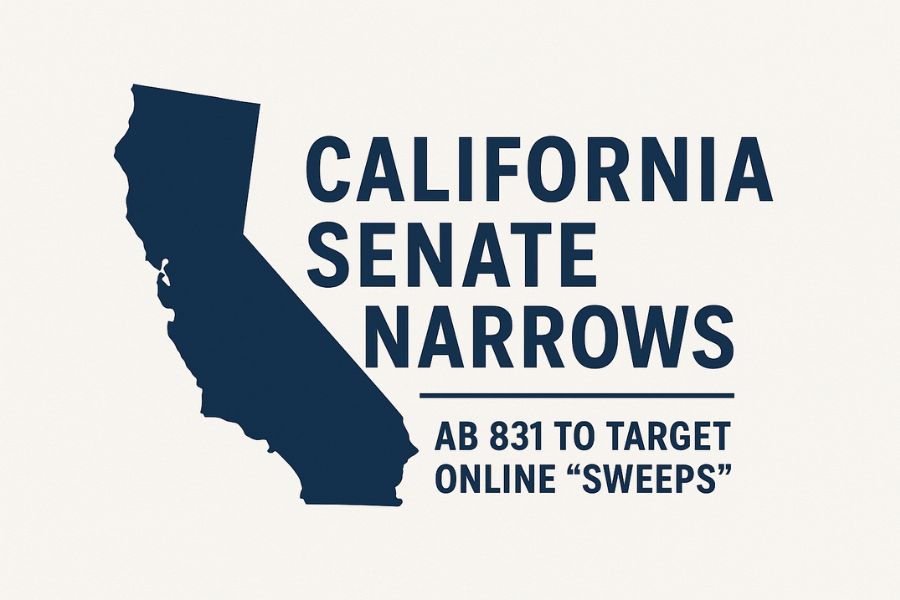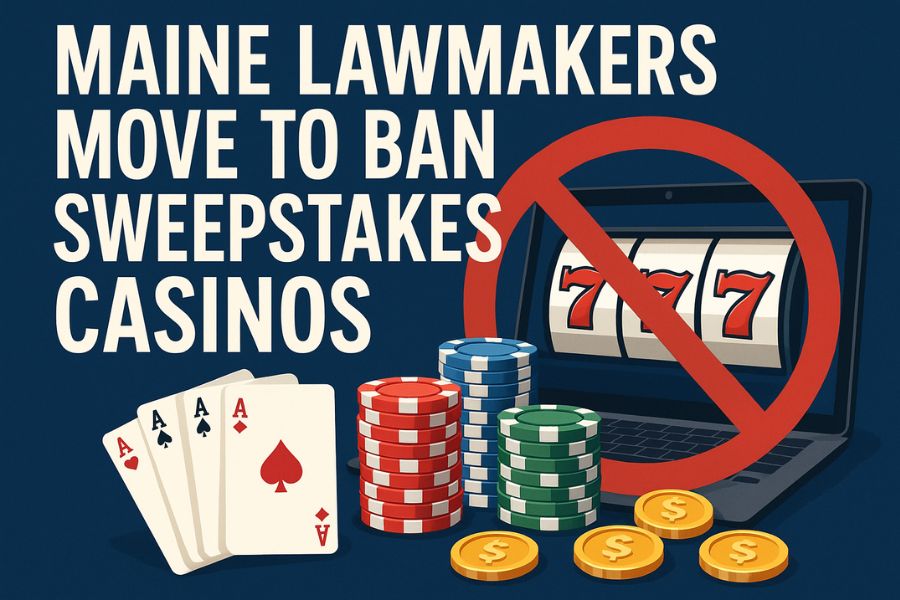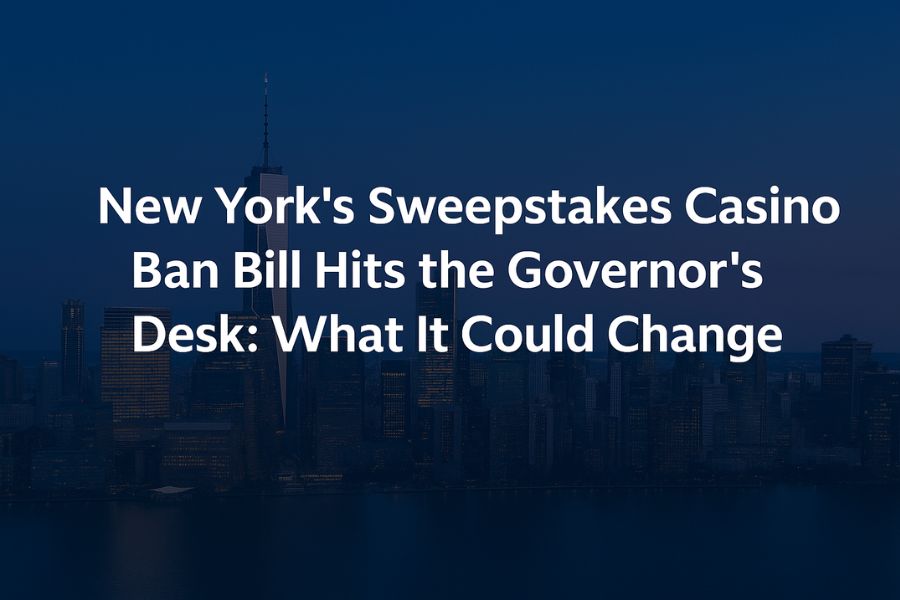California’s Senate has amended AB 831, a bill aimed at online sweepstakes gambling, to clarify what is and isn’t covered.
The changes say normal retail promotions (like coffee-shop contests) are not banned, and that the rule focuses on “dual-currency” sweepstakes casinos that mimic real casinos online. The latest edits were made on September 3, sending the bill back to second reading in the Senate while debate continues.
The bill would still make it illegal to run or promote these online sweepstakes in the state, but it adds clearer limits and protects some businesses that aren’t directly involved.
What the Amendments Actually Do
Lawmakers replaced the phrase “gambling-themed games” with plain “gambling”, to avoid confusion. They also added language saying the measure doesn’t touch the California Lottery or games run under the state’s Gambling Control Act.
Most importantly, it states that normal store promos used “on a limited and occasional basis” as part of selling real products are okay. Think of the kinds of sweepstakes you see at big chains that give away prizes to customers; those are not the target here.
The bill also raises the bar for who can be punished. It now says enforcement focuses on people who “knowingly and intentionally” run or help run dual-currency sweeps. That means banks, payment processors, and other support companies are not liable if they don’t realize they’re involved.
Suppliers, platforms, and media partners face penalties only if they act “knowingly and willfully.” Earlier changes also made clear that individual players won’t be charged just for using these sites.
What counts as a “dual-currency” sweepstakes? These sites usually sell virtual coins and give bonus “Sweeps” coins that can be redeemed for cash or prizes. Many offer casino-style play like slots, blackjack, or video poker without holding a traditional gambling license.
Under AB 831, operating or promoting those sites in California would be unlawful, even if they call themselves “promotions” rather than gambling.
Who Supports It and Who Doesn’t
Supporters include major gaming tribes such as the Yuhaaviatam of San Manuel and the California Nations Indian Gaming Association (CNIGA). They argue the bill closes a loophole and protects tribal gaming from unlicensed online competition.
They also say the new wording makes sure normal marketing promotions at retailers can continue, which eases an early concern about “accidental” violations.
Opposition has grown among several smaller tribes that see online partnerships as a path to revenue. Leaders from Kletsel Dehe Wintun Nation, Sherwood Valley Rancheria, the Mechoopda Indian Tribe, and Big Lagoon Rancheria say an outright ban could deepen economic gaps.
They argue that tribes far from big cities need digital business opportunities to fund services like health care, education, and housing. Some critics also worry about broad liability and want more room for regulation instead of a ban.
Industry and local groups are split as well. Publishers Clearing House has urged lawmakers to slow down and consider a regulatory model. Cardroom cities have warned that the bill could put them at risk while trying to tackle offshore-style sweepstakes sites.
Meanwhile, other states have moved ahead with bans or crackdowns on similar products, so California’s decision will be watched across the country.
What’s next? The bill is still moving through the Senate, and more edits are possible before a final vote. For players, nothing changes until the bill passes and is signed into law.
For now, the latest amendments show lawmakers trying to target the online sweeps model, while leaving everyday retail promotions and unrelated businesses out of the crosshairs.




